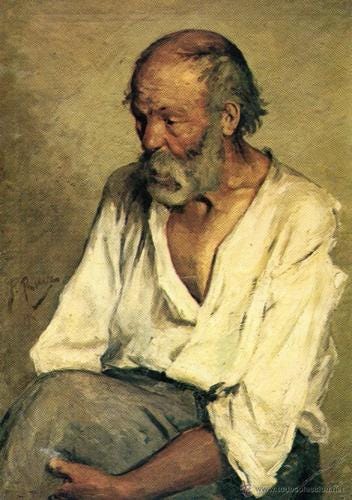The Endgame
Newsletter #49 - The hound that came a stranger to us
Toronto, December 10, 2023
The hound that came a stranger to us
The word “home” encompasses many ideas—personal, geopolitical, bleak, romantic, lachrymose. Its correlative “homeless” is the most wretched of words, describing the most dangerous of circumstances.
In my recent book Antisemitism: An ancient hatred in the age of identity politics I wrote: “To be denied a home, what for all individuals and all peoples is central to their self-definition, existence, security, and comfort, is a bitter experience. No idea has more emotional impact and incorporates more basic human desires than the idea of a home. Nothing is more destructive of the spirit than not to have a home...”
There are many kinds of homelessness. You may be living in a big city without stable shelter, forced to sleep in a rudimentary hostel or on the street. You may be fleeing across borders, or find yourself exiled in a strange land, a refugee who can never return to the place you left. You may be one of an expelled people now wandering the earth in search of a place to stay. For a nation state, individual homelessness is a profound political and social policy problem. For the world, the homelessness of peoples is a deep and dangerous geopolitical issue.
There is a bleak, minimal view of home, perhaps best expressed by the poet Robert Frost. Here are lines from Frost’s The Death of the Hired Man, recounting a conversation between husband (Warren) and wife (Mary) about Silas, the feckless hired man:
‘Warren,’ she said, ‘he has come home to die:
You needn’t be afraid he’ll leave you this time.’
‘Home,’ he mocked gently.
‘Yes, what else but home?
It all depends on what you mean by home.
Of course he’s nothing to us, any more
Than was the hound that came a stranger to us
Out of the woods, worn out upon the trail.’
‘Home is the place where, when you have to go there,
They have to take you in.’
‘I should have called it
Something you somehow haven’t to deserve.’
For Warren and Mary, if you are the hired man, home is where they have to take you in, whether you deserve it or not. You are nothing more than “the hound that came a stranger to us.”
There is a different and romantic view of home, exuberant and ubiquitous, expressed, for example, by Kenneth Grahame in his novel The Wind in the Willows. In a chapter called Dulce Domum Grahame describes Mole and Rat returning from a daylong winter’s outing. As the sun sets, they respond to “that small enquiring something which all animals carry inside them, saying unmistakeably, ‘Yes, quite right; this leads home!” Mole senses that his burrow is nearby (Rat lives elsewhere, in a grander place). With Rat’s help, Mole finds his lair. The two animals dust, clean, light a fire, have a modest supper, and then go happily to bed. Before he goes to sleep, Mole meditates: “He saw clearly how plain and simple... it all was; but clearly, too, how much it all meant to him, and the special value of some such anchorage in one’s existence... It was good to think he had this to come back to, this place which was all his own, these things which were so glad to see him again...”
In her book The Suitcase: Six Attempts to Cross a Border, Frances Stonor Saunders tells the story of her family, constantly on the move starting as the world churned in the 1940s. She tells of her father, then a child. “He soon grew tired of asking... ‘Are we nearly there yet?’ ... He learned that everything was temporary, that home was a ‘for now’ place, the place where your suitcase was...”
For many, home is just a “for now” place. There is a half-packed suitcase in the next room.




Wonderful writing,thank you